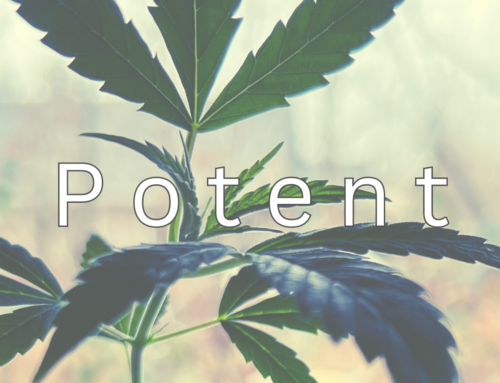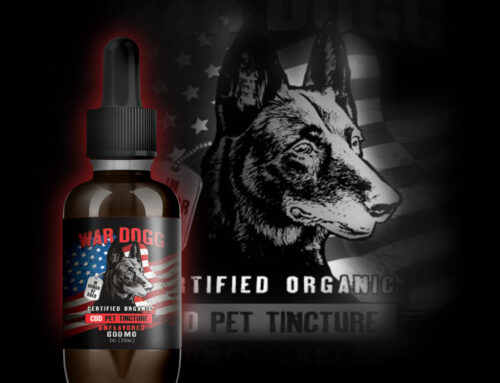Posted by Grön on Mar 15th 2019
If you are anything like most people, you’re probably seeing CBD pop up everywhere and in everything. And if you haven’t yet felt the joys of having fifteen of your friends, family, or coworkers tell you about how CBD cured their cold, achy knee, hangover, whatever, then get ready, it’s coming. It’s CBD’s world now, and we all just live in it.
But the world of CBD comes along with some of its own lingo that many of us, myself included, might not be too familiar with. A big example of this is the word “terpene.” I kept seeing this word come up, and even wrote it in a couple of my past articles, but I wasn’t exactly sure what in the world these terpene things were. Well, today that ignorance ends!
Let’s take a quick dive right into what terpenes are and what they have to do with your health and CBD.
What are terpenes?
The short answer is that a terpene is a compound made by many plants and some insects that often gives off a strong scent. Have you ever heard of essential oils, those things people put in diffusers and are used in everything from perfumes to cleaning products? Yup, those essential oils are primarily made of terpenes, and it’s those terpenes that give the essential oils their strong fragrance and supposed health benefits.
You know the smell that a pine tree gives off? That’s from the terpene linene. And that awesomely pungent smell coming from the oil found in an orange peel? That’s a terpene called limonene (yeah, the people who come up with terpene names don’t come across as too creative…). Put simply, terpenes are responsible for the awesomely fragrant essential oils that come out of plants.
The more complex answer is that terpenes are a pretty diverse group of hydrocarbons produced by plants and insects for interesting evolutionary reasons. Usually, the terpenes act either as a deterrent to predators (biting into an orange peel is rather unpleasant because of the strong oils), or as a way of attracting insects that can either help pollinate the plant or eat other insects that pose a risk to the plant. It’s a pretty cool system, if you think about it! There are reasons plants smell the way they do, and those smells usually come from terpenes.
Why should I care about terpenes?
I hear you saying to yourself, “OK, cool, these things are like cologne for plants. What does this have to do with me?” If you don’t find plant biology interesting in its own right (and you really should, the world is an amazingly interesting place!), then there are two main reasons terpenes should be something you pay attention to.
First, terpenes might have health benefits in and of themselves. Have you ever had a massage with scented oils, taken a bubble bath with some lavender scented soap, or walked through a garden filled with divinely scented flowers? Did any of those experiences affect your mood or mental state by making you feel more relaxed, calm, or happy? If so, you might have been the beneficiary of something called “aromatherapy,” and that therapy was likely brought to you by the powers of terpenes.
In addition to aromatherapy, many terpenes have been found to have direct health benefits when used topically or ingested (for the record, never drink pure essential oils. That’s a recipe for a bad time). For example, studies showthat the terpene caryophyllene has anti-inflammatory properties, and the terpene linalool might actually reverse some of the symptoms of Alzheimer’s disease. How amazing is that?
The bottom line is that there are a lot of studies out there showing that terpenes themselves might have some awesome health benefits. I encourage you to look into the possible benefits of your favorite essential oil!
What do terpenes have to do with CBD?
This leads me to the second reason you should care about terpenes: the entourage effect. You know how some musicians and sports superstars roll around with a huge crew of people every where they go? Turns out, some compounds in nature do the same thing, and the company your CBD keeps might make a difference in how it impacts you. Basically, the entourage effect is the idea that some compounds work better, or at least differently, as a group than they do by themselves.
As I understand it, there are two main ways the entourage effect works with terpenes and CBD: either the terpenes alter the way CBD binds with your receptors, or the terpenes have an effect that in some way compliments the effect of the CBD.
For example, a paper done by Dr. Ethan Russo in 2011detailed the many ways terpenes and cannabinoids, like CBD, interact with each other. Specifically, some terpenes, like caryophyllene mentioned above, actually bind to cannabinoid receptors and thus impact the way CBD interacts with your cannabinoid system. So, terpenes can actually turn up or turn down the volume, so to speak, on the CBD you take.
Terpenes can also have complimentary effects that go with CBD. Taking CBD for relaxation or anxiety? It might be a good idea to pair CBD with a terpene that also encourages relaxation. Looking for the anti-inflammatory effects of CBD? Pair it with a terpene that also fights inflammation. Do some research and see if you can come up with combinations that specifically work well for whatever it is you need.
Does all CBD contain terpenes?
Nope, not all do. Hemp and cannabis naturally produce a number of terpenes, which is why so many strains smell so different from one another, so if your CBD is derived from hemp or cannabis, then it might contain terpenes as well. However, it all depends on whether your CBD oil has been isolated or if it is what is usually called broad or full-spectrum oil. These types of oil contain CBD that has been extracted from hemp along with everything else that’s in there, terpenes, THC, and everything else. CBD isolates, on the other hand, have stripped away everything that isn’t the pure CBD molecule. So, pay attention to whether your CBD has been isolated or not.
Does that mean full-spectrum CBD oil is always better? Not necessarily! Some people get a better benefit from CBD that contains all the natural terpenes of the hemp plant, but others report getting a better result with isolated CBD. Also, some people like knowing exactly what is in their CBD oil, which is easier to do with an isolate than a full spectrum oil. With an isolate, you can start with pure CBD and then add in whatever you want for a specific effect.
For example, Grön uses pure CBD in their chocolates and tinctures, which means they contain no terpenes or other cannabinoids. Their body line of products, on the other hand, uses full-spectrum hemp extract, so it contains everything that was in the original plant. It depends on what you are looking for and how you want to use your CBD.




